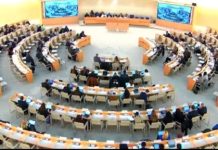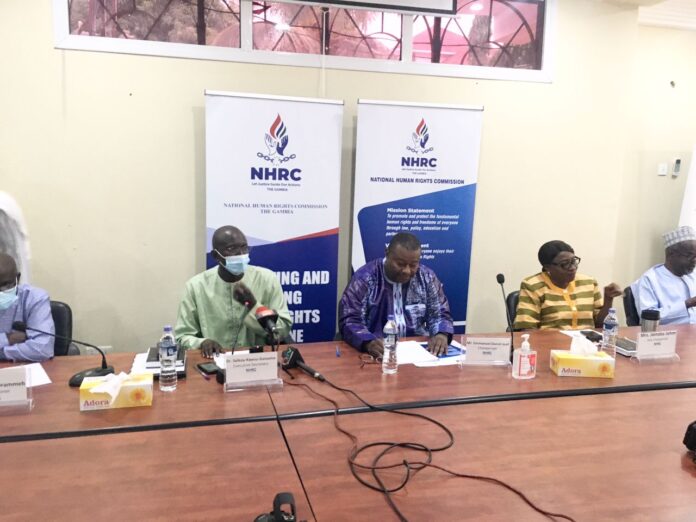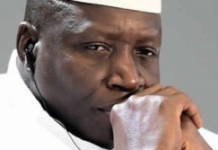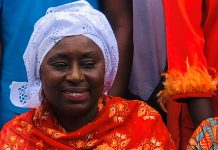By Mustapha Jallow
The National Human Rights Commission (NHRC) on Thursday said they would be watching the country’s security services’ conduct ahead of the forthcoming 4th December presidential election.
The rights commission said it is important that the security services are seen to be fair and impartial during the campaign trail and presidential election.
“All eyes on you,” said Mr Emmanuel Daniel Joof, the NHRC Chairperson.
Held at the NHRC’s building in Kotu on 11 November, 2021, the press conference was centered on election matters, including the commission’s monitoring exercise of the registration process, the nomination, and campaign and voting.
The human rights body also disclosed the engagement they had with political leaders, Civil Society Organizations (CSOs) and security agencies, saying the objective of meeting with political parties and security services was to ensure the country has a peaceful election without confrontation or violence.
They have also commented on their position on “Executive Orders’’ and recommendations to the Security authorities, political parties and all stakeholders.
“We are coming from a history, during the long role (22years) APRC, where you’ve seen police officers wearing party colours. Where you’ve seen police officers being instructed or given executive orders to stop a particular political party from holding a political rally. We have seen all those things. That’s why we are saying to the security services all eyes on you because you are expected to follow due process and the role of law,” Joof said.
According to him, talks are ongoing between them and the security services, adding that a commission like NHRC has been mandated to bring back a culture of rule of law because they are an institution that engages the executive and all the other branches of government to ensure due process is done, in whatever they do.
“So, police officers like everybody else are not above the law but they operate within the law. When we say rule of law, we are talking about rule by law,” he explained.
Mr Joof added that instructions must be in accordance with law, saying the country’s citizens must be law abiding, but law enforcement agencies must also obey the law.
“You (security services) cannot take instructions from everybody or anybody if it is not in accordance with the law. I think the TRRC was an eye opener as issues relating to executive orders. Executive orders if they do exist must be within the confine of the law,” NHRC’s boss said.
He said at the end of the election, there has to be one winner and even if people are going to challenge the results, it has to be through due process.
“We cannot have a process where the masses, at the end of the day, the majority of the people are saying that due process was not followed; either because the system was flooded or there were executive orders being given,” he narrated.
Mr Joof also noted that The Gambia has a history of free and fair elections and the IEC has provided them with the calendar for the campaign trail, dates for the presidential elections, and among others.
The Gambian lawyer further said elections are human rights activities because the right to vote is a fundamental right, which he linked with freedom of association and assembly.
NHRC Chairperson said his staff underwent capacity building training in a bid to monitor the election process. Similar training were also conducted with CSOs and the media practitioners, he added.
According to him, after completing monitoring of the voter registration process, they were able to engage all political parties because they observed during the process that there were a lot of hate speeches and incitement of violence, mainly from people who support certain political parties.
“We felt that NHRC had to engage the political parties and their executives, so that they can preach peace to their supporters,” he stated.
Nonetheless, he said they are also happy to note that the political parties signed the Pledge for Violence Free Elections known as the Janjangbureh Accord.






















